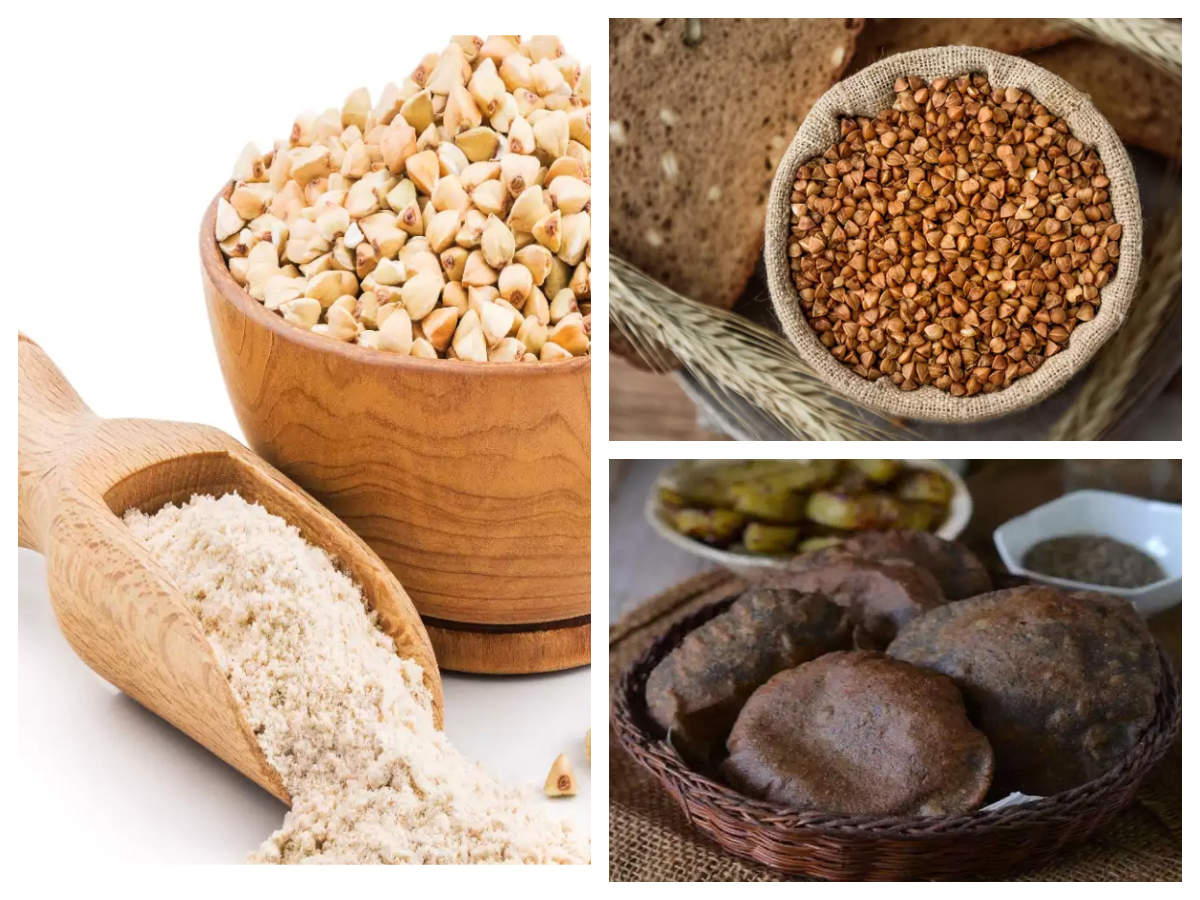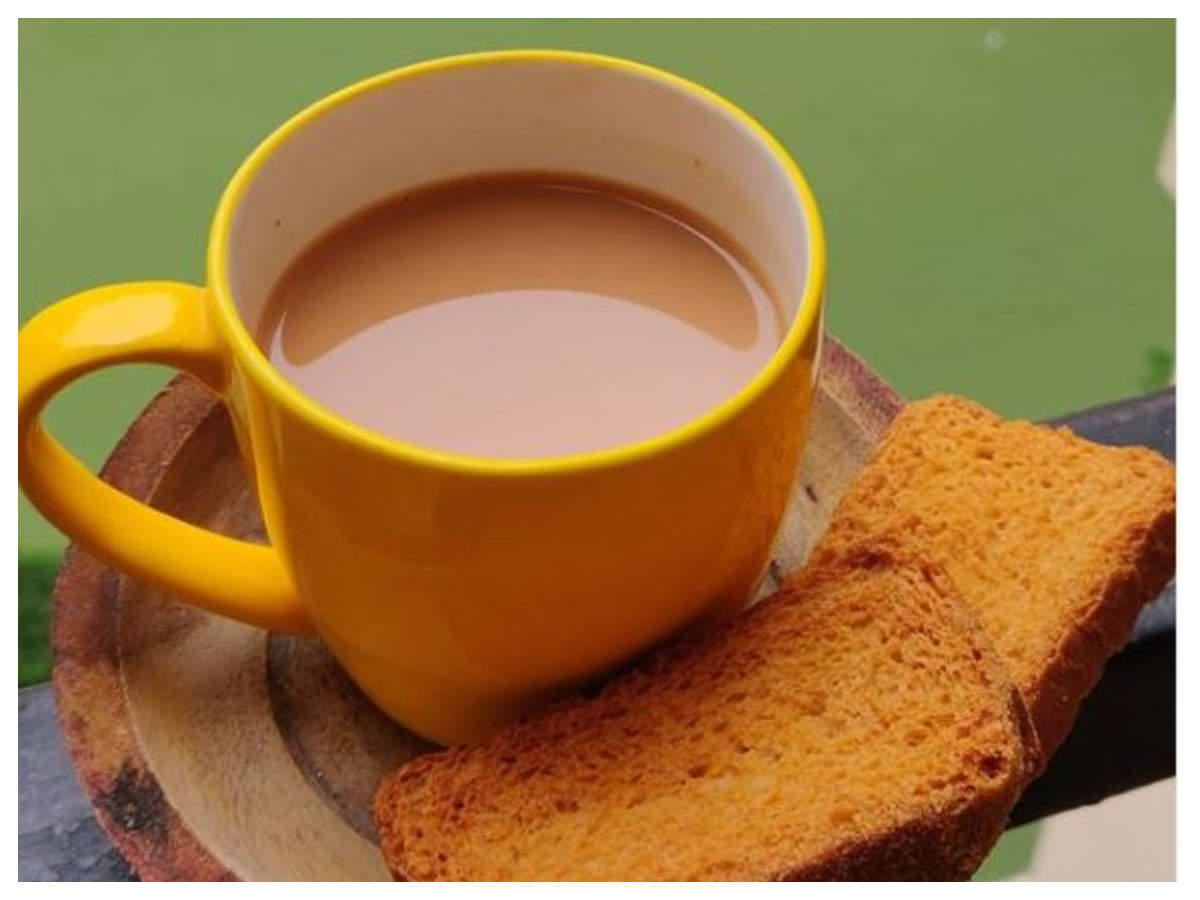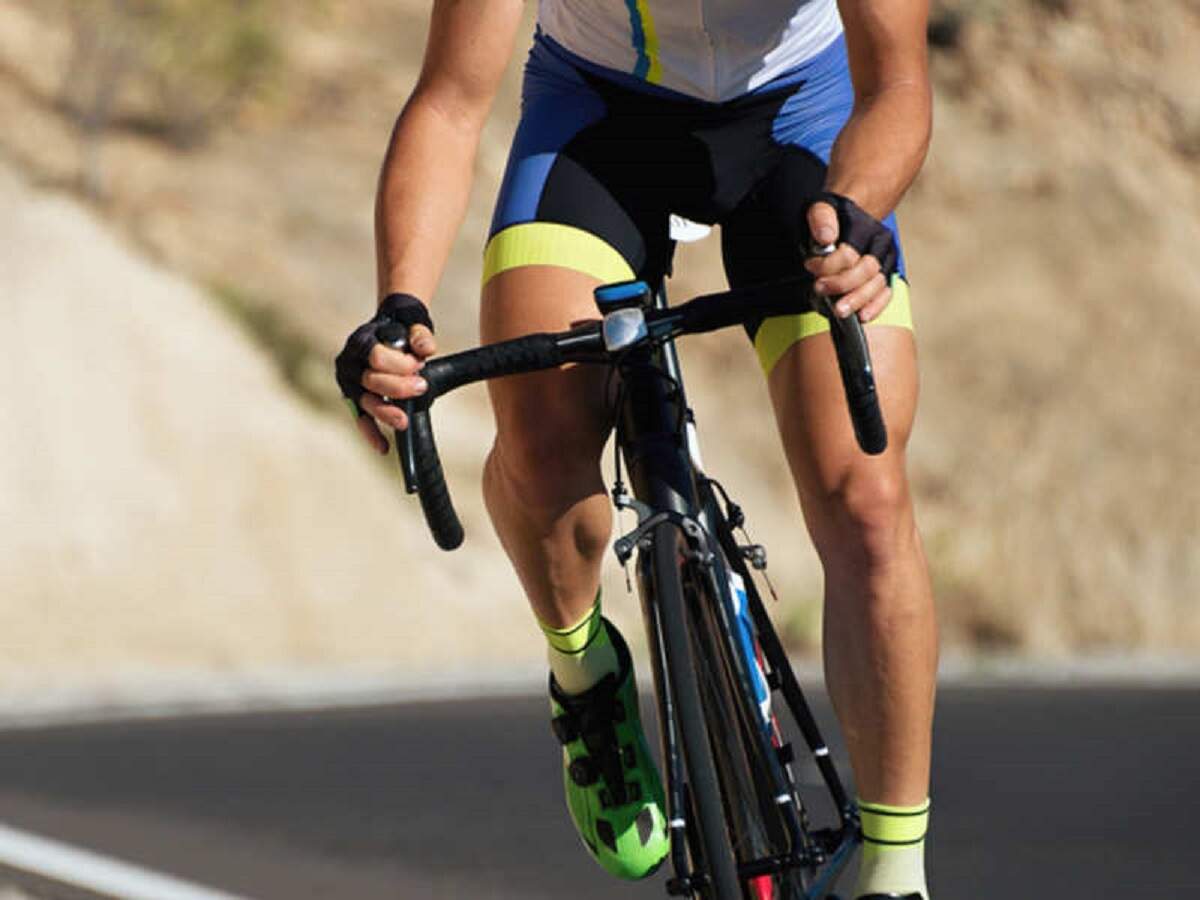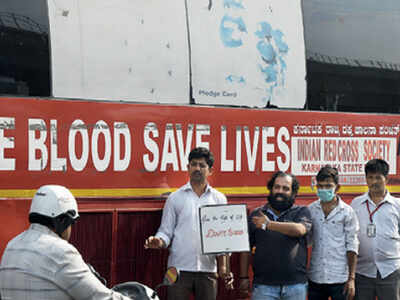
BENGALURU: Seven months into the pandemic, blood banks are depleted and desperate donation drives across the state have come a cropper since colleges are closed and most IT professionals are working from home. People are also wary of contracting Covid-19.
On Wednesday, blood banks issued a plea on social media for donations. Rashtrotthana Blood Bank, which caters to 426 children who suffer from thalassemia, has appealed to people to donate and is organising drives in apartments. thalassemia patients need regular blood transfusion — in the children’s case once a fortnight.
Dr Sumitra P, medical officer, Rashtrotthana, said their requirement prior to the pandemic was 2,500-3,000 units a month, but now they get only 1,500-1,600 units.
“Our focus is to cater to thalassemia patients who come regularly to our Samraksha centre. NGOs have helped to mobilise donors and conduct drives. Now, we have appealed to the public to and help,” Dr Sumitra said, adding that the affected also include several kidney patients who need blood transfusion.
Of the 426 thalassemia children Rashtrotthana caters to, more than 25% are from outside Bengaluru and some from neighbouring states too. “We also ask patients’ families to help us mobilise donors by appealing to friends and relatives,” Dr Sumitra said.
The scene is no different at Rotary Bangalore-TTK Blood Bank run by Bangalore Medical Services Trust (BMST) that treats over 100 thalassemia patients. Some of them require transfusion twice a day.
“Compared to the situation during the lockdown, there is an improvement,” said Dr Latha Jagannathan, medical director and managing trustee, BMST. “We used to collect 3,000-3,500 units a month, but now we get about 1,000 units.”
Dr Latha said donors need not undergo Covid rapid antigen tests. “We do ask donors if they have had any symptoms in the previous two weeks or if they have had any travel history or if anyone in their family is infected,” she said. “Globally, there is no proof of the virus spreading through transfusions.”
BMST has tied up with hospitals, where staff and relatives of patients are asked to donate. And since donation drives in IT parks and colleges have come to a standstill, BMST is targeting apartments. “Our mobile ambulance goes to apartment complexes, but we get no more than 35 units,” said Dr Latha.
Health and family welfare department officials admit there are challenges in holding donation drives, but insist there has been no shortage so far. “Home-based healthy individuals should come forward and donate. The government has been conducting awareness campaigns on the need to donate amidst the pandemic,” said a spokesperson of Jeeva Sanjeevini, which monitors blood banks cross the state.
On Wednesday, blood banks issued a plea on social media for donations. Rashtrotthana Blood Bank, which caters to 426 children who suffer from thalassemia, has appealed to people to donate and is organising drives in apartments. thalassemia patients need regular blood transfusion — in the children’s case once a fortnight.
Dr Sumitra P, medical officer, Rashtrotthana, said their requirement prior to the pandemic was 2,500-3,000 units a month, but now they get only 1,500-1,600 units.
“Our focus is to cater to thalassemia patients who come regularly to our Samraksha centre. NGOs have helped to mobilise donors and conduct drives. Now, we have appealed to the public to and help,” Dr Sumitra said, adding that the affected also include several kidney patients who need blood transfusion.
Of the 426 thalassemia children Rashtrotthana caters to, more than 25% are from outside Bengaluru and some from neighbouring states too. “We also ask patients’ families to help us mobilise donors by appealing to friends and relatives,” Dr Sumitra said.
The scene is no different at Rotary Bangalore-TTK Blood Bank run by Bangalore Medical Services Trust (BMST) that treats over 100 thalassemia patients. Some of them require transfusion twice a day.
“Compared to the situation during the lockdown, there is an improvement,” said Dr Latha Jagannathan, medical director and managing trustee, BMST. “We used to collect 3,000-3,500 units a month, but now we get about 1,000 units.”
Dr Latha said donors need not undergo Covid rapid antigen tests. “We do ask donors if they have had any symptoms in the previous two weeks or if they have had any travel history or if anyone in their family is infected,” she said. “Globally, there is no proof of the virus spreading through transfusions.”
BMST has tied up with hospitals, where staff and relatives of patients are asked to donate. And since donation drives in IT parks and colleges have come to a standstill, BMST is targeting apartments. “Our mobile ambulance goes to apartment complexes, but we get no more than 35 units,” said Dr Latha.
Health and family welfare department officials admit there are challenges in holding donation drives, but insist there has been no shortage so far. “Home-based healthy individuals should come forward and donate. The government has been conducting awareness campaigns on the need to donate amidst the pandemic,” said a spokesperson of Jeeva Sanjeevini, which monitors blood banks cross the state.

Coronavirus outbreak
Trending Topics
LATEST VIDEOS
City
 On cam: Fort wall collapses after heavy rains in Telangana
On cam: Fort wall collapses after heavy rains in Telangana  Kerala gold smuggling case: Accused have links with Dawood Ibrahim, says NIA
Kerala gold smuggling case: Accused have links with Dawood Ibrahim, says NIA 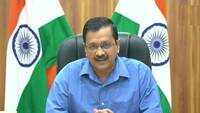 'Red light on, gaadi off': Delhi CM Arvind Kejriwal urges people to take pledge to reduce air pollution
'Red light on, gaadi off': Delhi CM Arvind Kejriwal urges people to take pledge to reduce air pollution 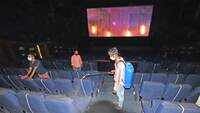 Delhi Unlock 5: Movie theatres reopen with limited seating capacity
Delhi Unlock 5: Movie theatres reopen with limited seating capacity
More from TOI
Navbharat Times
Featured Today in Travel
Quick Links
Get the app
